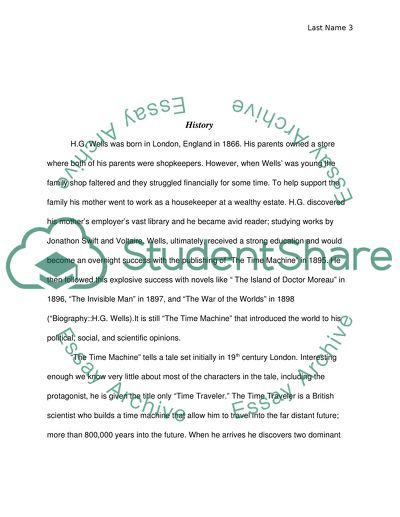Cite this document
(“The Time Machine Book Report/Review Example | Topics and Well Written Essays - 2000 words”, n.d.)
Retrieved from https://studentshare.org/literature/1627713-the-time-machine
Retrieved from https://studentshare.org/literature/1627713-the-time-machine
(The Time Machine Book Report/Review Example | Topics and Well Written Essays - 2000 Words)
https://studentshare.org/literature/1627713-the-time-machine.
https://studentshare.org/literature/1627713-the-time-machine.
“The Time Machine Book Report/Review Example | Topics and Well Written Essays - 2000 Words”, n.d. https://studentshare.org/literature/1627713-the-time-machine.


